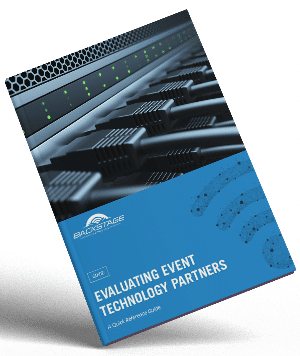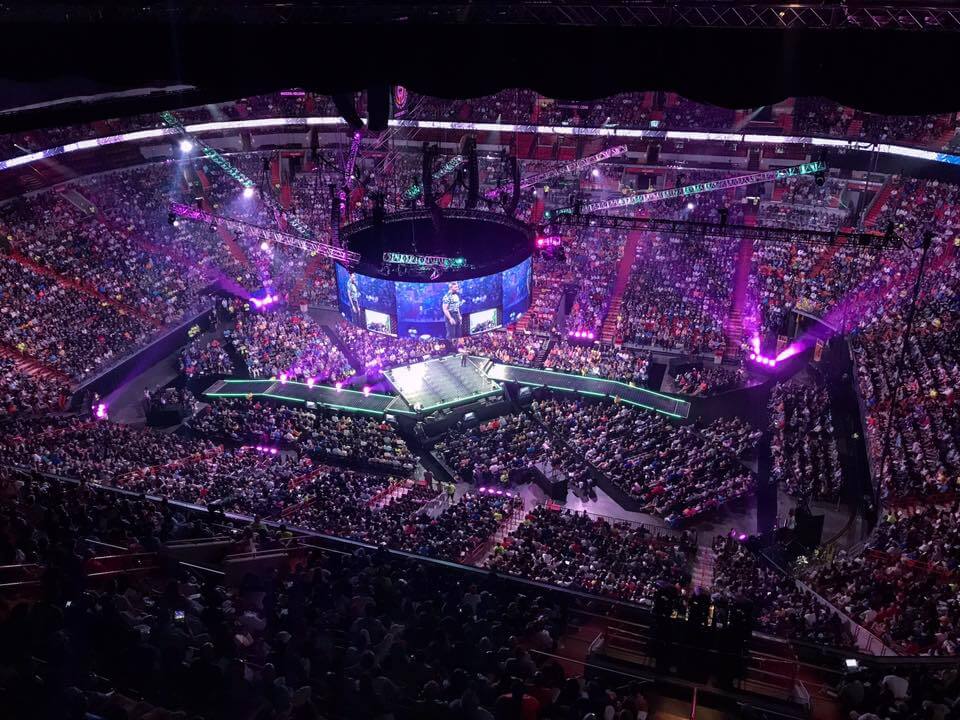EVERYTHING YOU NEED TO KNOW ABOUT EVENT WIFI
WiFi is essential for ensuring modern events run smoothly and provide engaging attendee experiences. When participants can easily buy tickets, scan passes, purchase food, and post on social media, they can focus on enjoying the event they invested in with their time and money.
On the other hand, weak or unstable WiFi can lead to long lines, bottlenecks, apps that won’t load, and stuck payments. These experiences lead to frustration and event dissatisfaction among attendees, vendors, and sponsors. This can ultimately impact event revenue and even future event participation.
Backstage Networks Live provides reliable, high-speed, and scalable WiFi solutions tailored for events of all types and sizes. They help event organizers avoid common pitfalls to run successful live events.
Why Reliable Event WiFi Is Essential
Modern events require both production WiFi and public WiFi. Business and production groups need WiFi for their event technologies and systems, while public WiFi supports the live event experience for attendees.
Event operations
To keep the event running smoothly, exhibitors, performers, vendors, and organizers need reliable WiFi. Network problems can impact ticketing, registration, and payment processes, causing delays and unhappy attendees.
Production WiFi may cover:
- Ticketing processes
- Point-of-sale (PoS) systems
- Access control platforms
- Front-of-house production
- Back-of-house production
- Artist and performer needs
- Speaker presentations
- Exhibitor technologies
- Sponsorship activities
- Social media teams
- Closed-circuit television (CCTV) surveillance
- Digital signage
- Data collection
- Staff communications
- Audio, video and lighting
- Event streaming and broadcasting
Attendees
Event attendees expect to have reliable WiFi that enables them to livestream, post to social media, and use other phone apps for messaging and purchases. WiFi capabilities are especially important for partnerships with influencers who plan to share content about your event.
Attendees need WiFi for:
- Accessing event apps and information
- Purchasing food and merchandise
- Posting and streaming to social media
- Personal communications
- Engaging with interactive event elements
- Access to assistive technologies like live transcription
Data Collection
WiFi helps you gather and analyze data on attendee behavior and preferences. This information helps you make critical decisions during the event as well as make improvements for future events.
Brand Reputation
A smooth WiFi experience enhances the event’s credibility. Negative connectivity experiences for attendees and others can harm efforts to get sponsors and sell tickets for future events.
Key Factors to Consider When Setting Up WiFi for Events
When planning your event, consider these questions and how the answers will impact the success of your event.
Bandwidth requirements
How many attendees do you anticipate? How will they be using the network?
The bandwidth needs to accommodate all users and applications, while maintaining low latency and high performance for livestreams, user needs, and production technologies.
Coverage and capacity
What size is the venue? Is the event indoor or outdoors?
The answers will impact WiFi design to ensure coverage is adequate for high-density areas and can handle high user density and bandwidth demands.
Security concerns
How will you protect users’ sensitive data?
Ensure you will have properly sized and configured firewalls, routers, switches, and security platforms. Document industry best practices and network security protocols to protect user data during your event.
Scalability and redundancy
How can you ensure a stable connection? Does your design incorporate network redundancy?
Delivering service from multiple transport providers with diverse physical network paths will make your network more scalable and resilient. This way, you ensure the network continues to work even if one link goes down.

